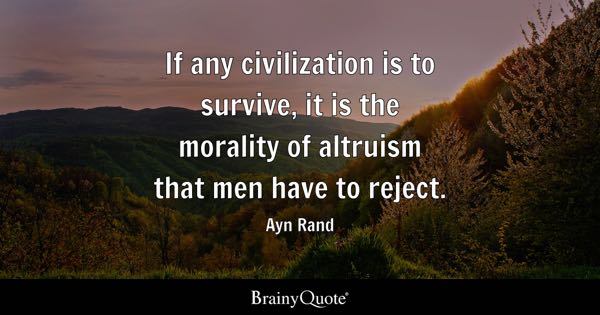Do you believe that evolution can explain the development of altruism in the human species or do you think that other factors were involved?
Altruism is when we act to promote someone else’s welfare, even at a risk or cost to ourselves.

Not that I'm agreeing with the above quote but, what do you think Rand meant by this?
Altruism is when we act to promote someone else’s welfare, even at a risk or cost to ourselves.

